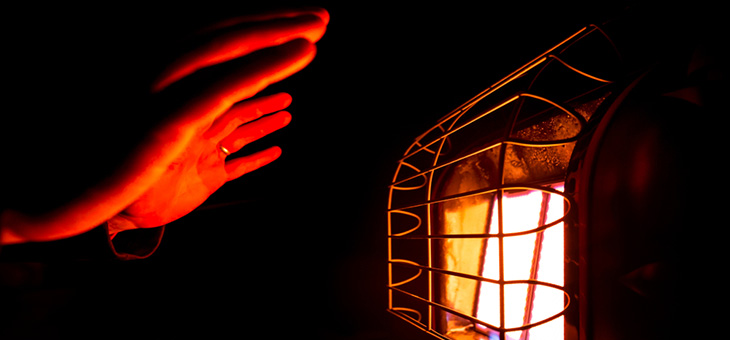Winter is almost here. In many states, cooler weather over the weekend means it has arrived few days early. And with the cold comes the need to switch on the heater.
However, before you do, you should check whether yours is a potential killer.
Energy Safe Victoria and the Australian Gas Association have warned that Vulcan/Pyrox open flue gas heaters could be dangerous. A coroner even went as far as recommending that all open flue heaters be phased out after the death of 62-year-old Sonia Sofianopoulos from carbon monoxide (CO) poisoning in 2017.
The Victorian Government has almost completed a replacement program for more than 6000 of these deadly heaters.
Across the nation, Australians are being advised to carry out some simple safety checks before switching on units that have been inactive over the warmer months.
Unsafe heaters can cause fires and fill your home with deadly – often undetectable – carbon monoxide fumes.
“With heaters sitting idle for many months over summer, air filters, air ways, fans and burners can become blocked by lint and dust,” said Western Australia’s Director of Energy Safety, Ken Bowron. “This can lead to overheating and burner problems producing carbon monoxide gas.
“Gas appliances should be checked and serviced by a licensed gas fitter or service agent, as per the manufacturer’s instructions or, at a minimum, every two years. If the appliance is over 10 years old, it should be checked annually. You can check the date of the last service by viewing the service sticker attached to it.
“Good ventilation and maintenance are vital to prevent the build-up of harmful carbon monoxide levels.”
Signs of carbon monoxide leaks include flu-like symptoms, sore or stingy eyes, headaches, dizziness, vomiting and respiratory problems that only seem to occur when the heating is on.
Signs your heater needs to be checked include:
- a yellow or sooty flame (unless it is a decorative gas fire)
- a pilot light that goes out unexpectedly, or pops or bangs when lighting
- signs of heat damage such as discoloration of the walls or heater panels
- walls becoming too hot to touch while the heater is on
- soot stains around the heater.
CO poisoning is more likely to affect older people with chronic heart disease, anaemia, or breathing problems but, apart from making sure your heater is professionally serviced, there are other ways to prevent such poisoning, such as:
- Battery-operated or battery back-up CO detectors can be installed in your home to alert you about CO levels in your home. CO detectors should be replaced every five years.
- Heating systems, including water heaters and any other gas, oil, or coal-burning appliances, should be serviced by a qualified technician every year.
- Your gas refrigerator should also be serviced, especially if you notice any odour.
- Make sure any gas appliances are properly vented. Any horizontal pipes used for ventilation should incline slightly as they go toward the outdoors, to prevent CO from leaking if the joints or pipes aren’t fitted tightly.
- Your chimney should be checked or cleaned every year. If your chimney is blocked in any way, CO can build up inside your home.
- Never use a gas stove or oven, portable gas stove or camping heater for heating and never burn any type of charcoal indoors.
Find out if you’re eligible to have your heater replaced.
Do you have your heater checked and serviced annually?
Related articles:
Do not turn on these heaters
Pre-winter house check
Five best ways to cut power costs

